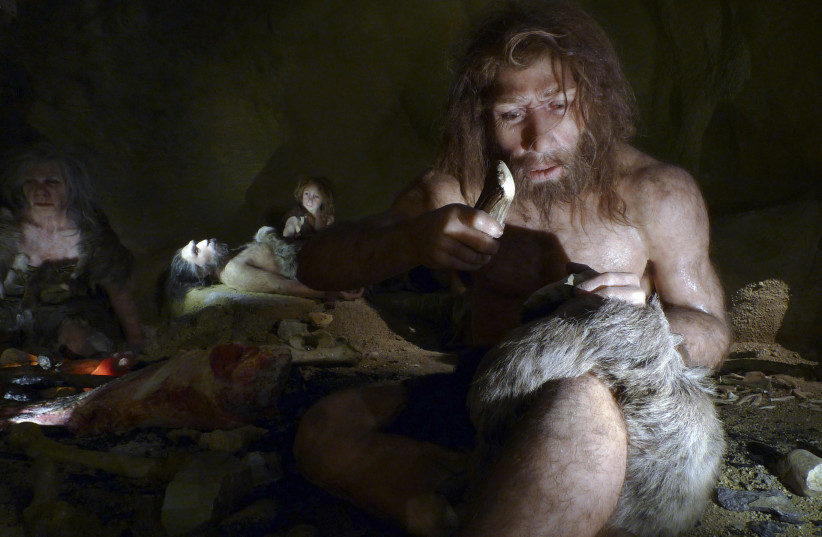A genetic risk factor for severe COVID-19 that some humans seem to have inherited from Neanderthals may offer some protection against HIV, according to a new study.
According to the findings of the study, which were published in the peer-reviewed academic journal Proceedings of the National Academy of Sciences (PNAS) by Hugo Zeberg of the German-based Max Planck Institute for Evolutionary Anthropology, the variant has a certain degree of prevalence among humans, should they have inherited this trait from their Neanderthal ancestors.
<br>Who are the Neanderthals?
Neanderthals are a prehistoric human population that lived in Eurasia between 200,000 and 35,000 years ago.
Their descendants, which can be seen through overlap and interaction with other early human species, are known to have this specific DNA variant.

It can be seen among 16% of Europe and 50% of South Asia, according to the study.
<br>What is this risk factor?
Found on chromosome 3, this variant seems to have a link to an increased likelihood of developing a severe case of COVID-19.
This is something that prior studies by Zeberg have already determined, having examined thousands of hospitalized patients, though the exact nature of the link isn't quite understood.
That being said, this sort of DNA variant has other consequences, and not all of them are bad. Specifically, it seems to help resist HIV.
<br>The study
This genetic variant is located in such a way that it is able to, in a sense, modulate and impact how certain chemokine receptors, which are a type of receptors that interact with chemokine signaling proteins, are able to function.
Among them is CCR5, a receptor that has an interesting quality, in that it is known to play a role in HIV infection by helping it infect white blood cells. However, if CCR5 is in some way unable to work normally or is mutated in a certain way, then it causes some resistance against HIV.
This is something that has been known in prior studies. In fact, a bone marrow transplant involving a CCR5 mutation was once used to seemingly cure HIV.
But what wasn't known was how this Neanderthal genetic variant affects CCR5.
“This major genetic risk factor for COVID-19 is so common that I started wondering whether it might actually be good for something, such as providing protection against another infectious disease,” Zeberg said in a statement.
This is what prompted him to investigate.
According to Zeberg's findings, the Neanderthal genetic variant makes one around 27% less likely to contract HIV.
"Bad news if a person contracts COVID-19, good news because it offers protection against getting infected with HIV," Zeberg said.
<br>Implications
The Neanderthal genetic variant's ability to make humans more resistant to disease makes sense as a natural evolutionary response to this disease.
But it does not make sense that it would be made specifically to protect against HIV.
HIV is a more recent disease to infect humans. It was first discovered among humans in the early 1980s and is believed to have originated from non-human primates.
However, this genetic variation is very old. So why has it been so common for tens of thousands of years?
According to Zeberg, the likely explanation was that it was meant to offer protection against some other disease. Exactly which disease is unclear, but he noted that smallpox is likely.
But the fact that this genetic variant has affected humanity to such an extent regarding COVID-19 and HIV shows that it can still play a role in future pandemics, as it may have in the past. But the exact nature of this role remains unseen.
Rossella Tercatin contributed to this report.
